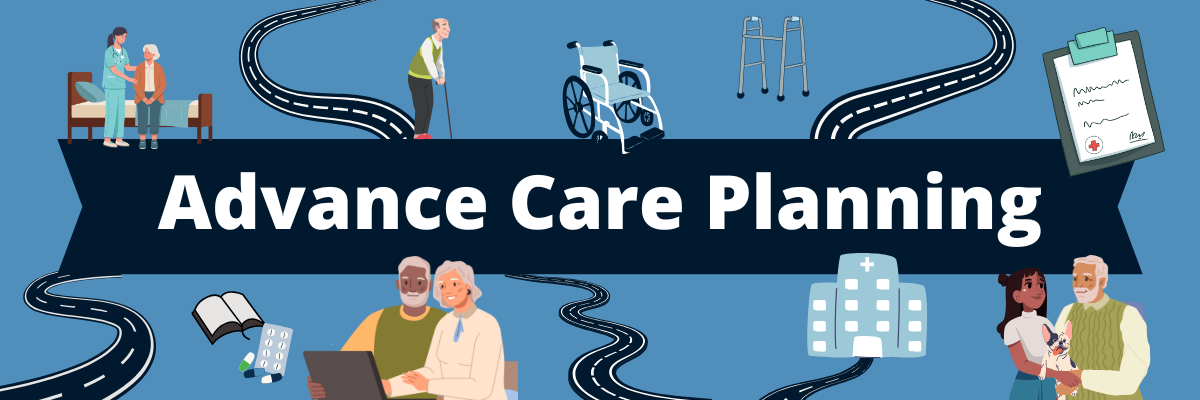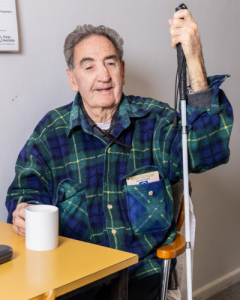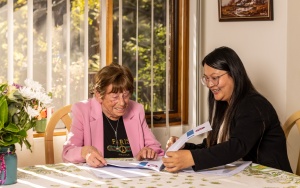
National Advance Care Planning Week is 17 – 23 March
Advance Care Planning (ACP) helps you make decisions about your future healthcare and ensures your family, loved ones and healthcare professionals know your wishes if you become unable to communicate them. It’s an important step for everyone, regardless of their age or health. Unlike a Last Will and Testament or an Advance Care Directive, an ACP is not a legal document but is used as a guide for future healthcare decisions that affect you.
Although talking about death may be uncomfortable, and sometimes your loved ones might want to avoid it, by writing a plan and involving them you are preparing them for a time when they be feeling too emotional or under stress to make such decisions alone. Your Advance Care Plan can include details of your preferences about what to do if you have a sudden accident, if your health deteriorates or you pass on. It is a good opportunity to think about things that your loved ones will have to consider, such as:
- What sort of care you might want if you become incapacitated
- How long to pursue life-sustaining treatment
- Who you want to make decisions on your behalf if necessary
- Organ donation and what happens to your body after you die
- What sort of funeral you would like
- What you want to happen to your pets or people dependent on you
Why consider an Advance Care Plan?
|
|
Advance care planning is particularly helpful if you have:
- A chronic illness
- A life-limiting illness
- A risk of dementia or related conditions
You don’t need to have a terminal illness to begin the conversation. Like creating a will, it’s about preparing for the future.
|

|
|
Who can create an Advance Care Plan?
|
|
Anyone over 18 with decision-making capacity can create an ACP. Decision making capacity means being able to make informed choices about your health, legal, financial, or personal matters. It can be as complex or simple as you want it to be.
|
|
|
What’s included in an Advance Care Plan?
|
|
An ACP can outline:
- Who you trust as your substitute decision-maker
- What is important to you, such as your values, goals, and preferred outcomes
- The treatments or care you would like or wish to avoid in certain situations
|
|
|
|
Your doctor can provide advice about your health and guide you through the process. Your Side’s consultants can offer information and resources during:
- Your initial service admission
- Health reassessments
- After hospital stays or health changes

Once completed, your ACP should be signed and shared with:
- Your substitute decision-maker
- Family members (if you choose)
Your doctor, hospital staff, and ambulance services (if needed)
|
|
|
Choosing a substitute decision-maker
|
|
Your substitute decision-maker should be:
- Someone you trust and who understands your values
- Over 18 and comfortable making decisions in tough situations
Consider naming a backup decision-maker in case your first choice is unavailable.
|
|
|
Some important things to remember
|
|
- You have the right to refuse discussions about ACP.
- A valid ACP must be followed by health professionals and family members.
- You don’t need a lawyer to create an ACP.
- Your Side’s Care Consultants can provide education and build awareness – but we do not make the plan for you.
|
|
|
|
For clients receiving end-of-life care, Your Side’s Care Consultants will:
- Check and follow your ACP (if available)
- Liaise with palliative care teams as needed
- Offer counselling and ensure your support plan is up-to-date
- Organise care tailored to your needs
Advance care planning is a way to ensure your preferences are respected and your loved ones are supported. If you’d like more information, speak to your doctor or contact your Care Consultant at Your Side
|
|





